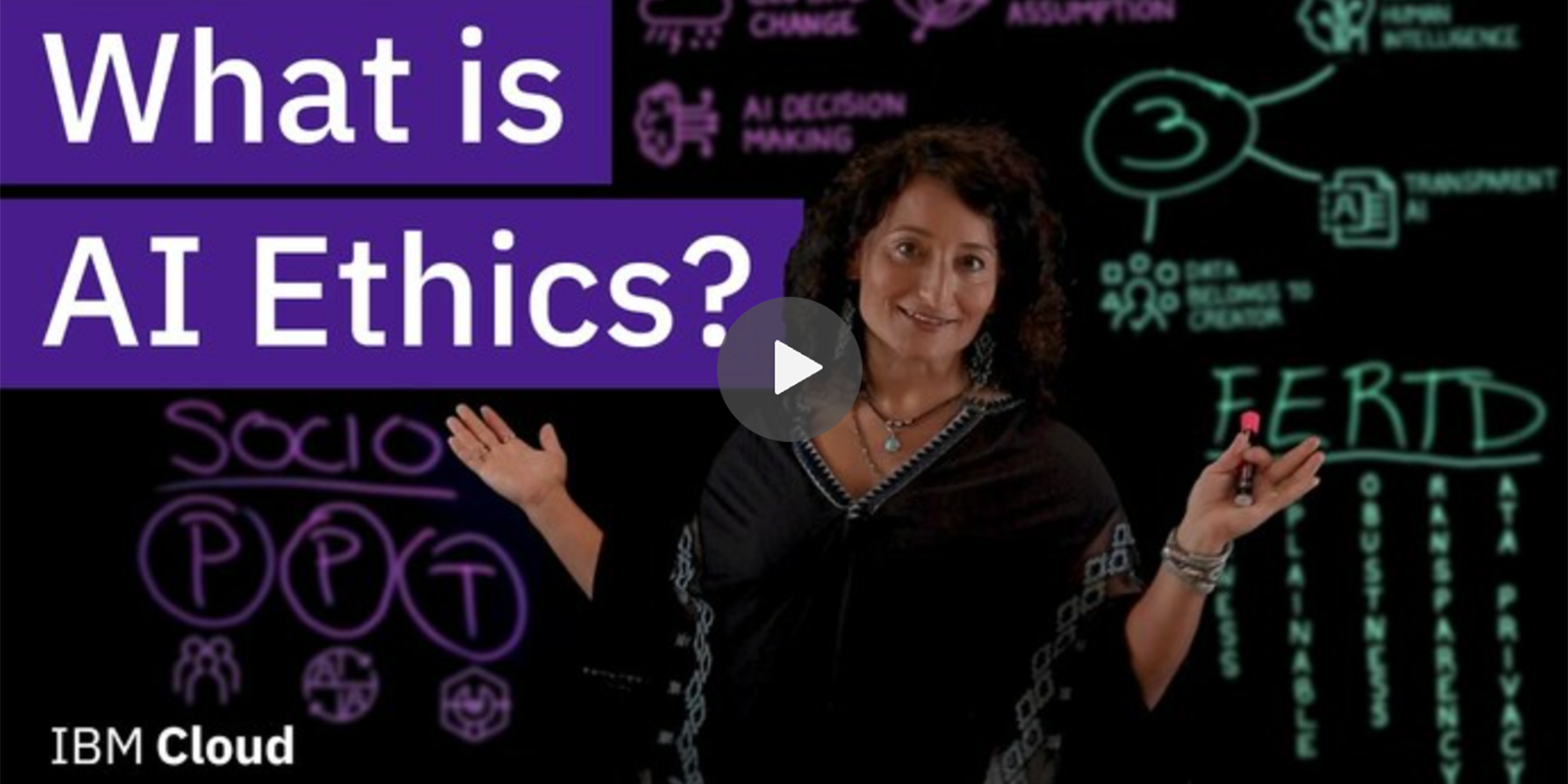Ethical Implications of AI
Understanding the ethics of artificial intelligence (AI) is about exploring the benefits and impact of AI while also reducing risk and adverse outcomes.

What Is AI Ethics?
AI ethics should evaluate fairness, explainability, robustness, transparency and data privacy.
Bias in AI
- There’s More to AI Bias Than Biased Data, NIST (2022) includes video (1:50).
- Algorithmic Bias and Fairness, PBS Crash Course, 2019 (Video 10:56).
Ethics of AI
- 5 Ethical Considerations of AI in Business, Harvard Business School (2025).
- Partnership of AI forums on policy, philanthropy and more (2025).
- Striking a Balance: Navigating the Ethical Dilemmas of AI in Higher Education, EDUCAUSE, 2024 (audio option).
- AI Human Rights Impact Assessment Tools, University of Waterloo (July 2025)
- AI Ethics Learning Toolkit, Duke University (2025)
- Ethics of Artificial Intelligence, UNESCO
AI Data & Bias
The most important aspect of Machine Learning is what data is used to train it, 2019 (Code.org, 2:41).
This is a talk about technology and a call to action for developers, business leaders and young innovators to become ethical architects of our digital future, June 2025, (TEDx Talks, 13:20).
